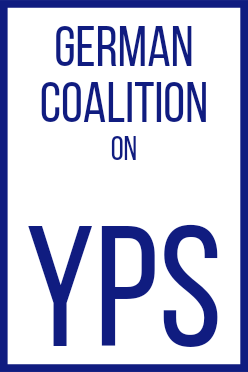The buzzwords youth, peace and security initially sound like three separate concepts with few points of contact. However, since the adoption of the first United Nations Resolution on Youth, Peace and Security in 2015 (UNSCR 2250), which was driven by youth organizations from all over the world, it has become clear that young people play a crucial role in building and maintaining peace and that concepts for building peace and security can only be implemented together with young people. The participation of young people at local, national, regional and international levels is seen as a key factor in implementing sustainable peace and security structures. The existence of ongoing military conflicts underlines the need for such an agenda more than ever.


In addition to the participation of young people, Resolution 2250 builds on various aspects of achieving peace and security for young people: These include prevention and protection measures, but also partnerships with other international institutions and reintegration measures for young people previously affected by conflict. This is because young people are often those who are most affected by the consequences of military conflicts. For example, they lose access to education or the labor market & also make up a not insignificant proportion of those who are involved in military conflicts as soldiers. In order to enable sustainable peace and security structures, young people need inclusive spaces for participation that enable them to play an active role in shaping social coexistence.
The more far-reaching UN Security Council Resolution 2419 from 2018 also recognized the role of young people in peace negotiations, the implementation of peace agreements and conflict prevention. In particular, it called on member states to protect young people from the violent effects of armed conflict – a demand that seems more important than ever in the current global situation with its particularly high number of young people under arms. UN Security Council Resolution 2535 from 2020 also emphasized the role of young people in humanitarian aid and the need to create a youth-specific focal point on youth to identify the challenges in implementing the YPS agenda.

